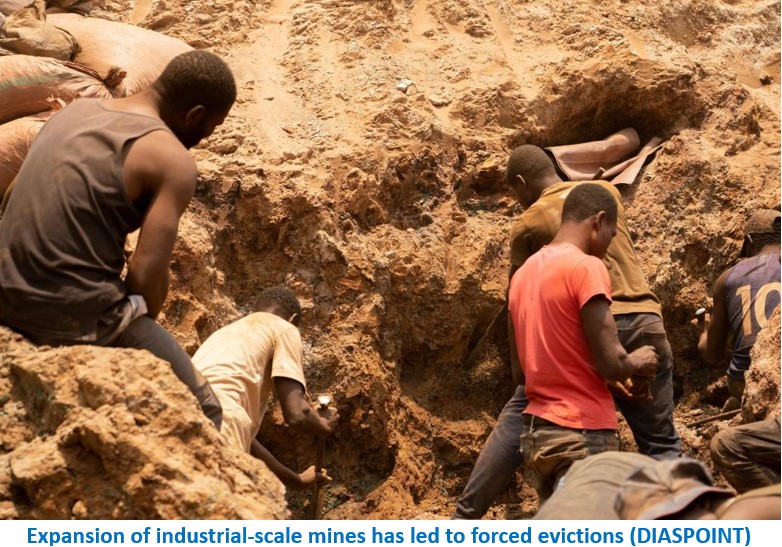Mining of cobalt, copper in DRC leading to human rights abuses
Post By Diaspoint | September 15, 2023

The expansion of industrial-scale mines that extract cobalt and copper for rechargeable batteries has led to forced evictions and human rights abuses, including sexual assault, in the Democratic Republic of the Congo, according to Amnesty International.
In the report Powering Change or Business as Usual? published on Tuesday, Amnesty International and the DRC-based organisation IBGDH, or Initiative pour la Bonne Gouvernance et les Droits Humains (Initiative for Good Governance and Human Rights), detail how the expansion of multinational mining operations has led to communities being forced from their homes and farmland.
“The forced evictions taking place as companies seek to expand industrial-scale copper and cobalt mining projects are wrecking lives and must stop now,” said Agnes Callamard, Amnesty International’s secretary general.
“Climate justice demands a just transition. Decarbonising the global economy must not lead to further human rights violations. The people of the DRC experienced significant exploitation and abuse during the colonial and post-colonial era, and their rights are still being sacrificed as the wealth around them is stripped away.”
Increasing demand for so-called clean energy technologies has also created a demand for specific metals, including copper and cobalt, essential for making lithium-ion batteries. These batteries are used for devices such as electric cars and mobile phones.
The DRC has the world’s largest reserves of cobalt and the seventh largest reserves of copper, Amnesty International said in its report. Demand for cobalt is expected to reach 222,000 tonnes by 2025, triple that of 2010.
Amnesty International and IBGDH interviewed more than 130 people at six mining projects in and around the city of Kolwezi in the southern province of Lualaba during two visits in 2022.
Read More from original source
